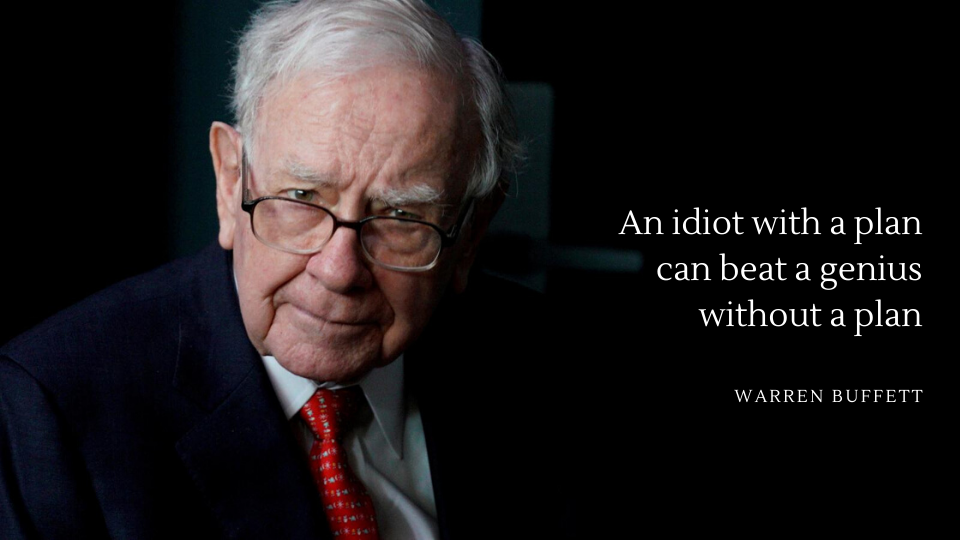People love to invest in stocks because of those sweet returns from the investments. However, this doesn’t mean those who invest in stocks are financially healthy. Nope. Having money doesn’t mean you are financially healthy. It is more than that.
Furthermore, investing shouldn’t be a rush. It is wise to get yourself a financial health check first before invest. It’s the first step to reduce the risk of investing.
1. Invest in Yourself First
Do you know what is the best investment that has almost no risk but high returns? Fixed deposit? Your children? No.
It’s yourself.

Even the greatest investor of all time, Warren Buffet responded “invest in yourself” when he was asked by the New York Times on what is the best investment we can make. Why? Because when you can lose all your money and assets, knowledge and wisdom always stay.
Before I start investing, I always enjoy using my free time to learn about finance and investing in articles and blogs online. The best way to get financially healthy is to upgrade your financial knowledge.
If you are not the type of person who is good at self-learning, you can choose to join in investing courses or classes. Unfortunately, I am a cheapskate person who refuses to spend any money on courses. So I’m not in a suitable position to recommend any course.
Nevertheless, Suyin Ong, one of our Malaysian finance Youtubers has signed up for Equity Tracker membership. Maybe you can check out their website and drop them a message.
2. Pay off Most of Your Debts
If you are just graduated, you may only have a student loan with you. But if you already start working for some years, you might have more loans with you such as car loan and house loan, or even personal loans and credit card loans.
To start investing, you don’t want to have so many loans on your shoulders. The main reason is it will significantly reduce your cash flow and affect your financial stability.
What is cash flow? Here’s a simple formula to understand it.

By applying the above formula on your monthly income and expenses, you will get your cash flow. We will want to see our net cash in a positive number, else we will be in real trouble. Positive cash flow equals financially healthy.
As debts belong to the expenses category, clearing off debts will significantly increase our cash flow with the same amount of income. Of course, you can also increase your cash flow by increasing your incomes, but it is easier to pay off your debts.
3. Develop a Good Saving Habit
You are earning good money now, but why do you still feel broke? Because when I key in “a saving habit” in your life, it shows “404 not found”.
Sorry for the bad joke, but you know what I mean.
Investing helps us to grow our wealth, but it requires a sum of money to get started, also known as capital. Therefore, a saving habit is crucial as it is one of the efficient ways to accumulate our capital and ready to invest.
The best method to develop a good saving habit is to pay yourself first. This method has been mentioned in almost every personal finance book, blog, or even your parents. Hence it is certainly a recommendable practice.
How does “Pay Yourself First” works? Here are 3 simple steps that show how it works.

In order to save money, you have to prioritize saving over any other spending including your rent, phone bills, or car payment. To make this work effectively, you can automate this process.
I suggest to open a savings account from a bank and ask them how to create a recurring deposit from your salary account every month. Also, skip the ATM card. When withdrawing is a hassle, it will help you to save money easily.
To make your savings even more worthy, you may seek a high-interest savings account or fixed deposit which provides you a little extra bonus.

4. Build an Emergency Fund
When you have successfully developed a saving habit, let us talk about an emergency fund. Many people misunderstand the purpose of an emergency fund. It is not used for big purchases such as a car, a house, or a travel plan. There is a reason why it is known as an “emergency” fund, not a “big purchase” fund.
An emergency is defined as an unexpected event such as accidents, car broke down, house damaged by natural disasters, sudden illness, and other unexpected big expenses.

Here are some of the characteristics of the emergency fund:
- It is a sum of money that reserved ONLY for emergency use.
- The total amount of emergency fund varies to everyone and should cover at least 6 months of living expenses.
- An emergency fund should be easy to access and withdraw effortlessly.
- It should be totally free from market risk.
It is very important to have an emergency fund set aside, especially when you are getting ready to invest in the market. Here are the main reasons:
- Protect your investment when an emergency happened.
- Prevents you from running into debts when you need money.
- Provide you a sense of financial security.
When you are financially secured, you are financially healthy.
5. Cover Yourself with Insurance
Speaking of financial security, insurances are something that we should always consider to have, even we do not plan to invest. Life is unpredictable. Unexpected things will happen, either a fortunate event or an unfortunate event for you.

With insurances, we are able to claim a sum of money to cushion the huge expenses during an unfortunate event. Some insurance might not cover all the expenses. That is when an emergency fund helps to soak up the damages.
In my opinion, we should have at least one life insurance and one medical card as financial protections. Even if your company provides you a free medical card, there’s no harm buying one on your own. You have no idea how long you are going to work there.
Being financially healthy is not always having the offensive power (having money), it is a balance of having the defensive power (insurance) as well.
6. Acknowledge that Investing is a Long Journey
Investing means putting money in financial vehicles with the expectation of achieving a profit. Most of the time, the expectation will not be met when the given time for investing is short.
If you throw your money into an asset and hope for a quick return, that’s not investing, it is speculating. Although some traders earn good profits from speculating, most people lose their money. That is why I always recommend people (and myself) to invest for the long term.

Speculating and trading for short terms will work well when the market is stable. Conversely, speculating during the global stock market crash (like what happened on 9 March 2020, which is known as Black Monday 2020) will end up in a catastrophic loss. Trust me, you don’t want to experience that.
In short, we should always remember that investing in the Stock Market exposed our money to market risk. That is why we should always invest for the long term, at least 5 years and above. Investing is not a sprint, it is a marathon.
7. Surround Yourself with Financially Smart People
According to the survey by Luno, almost 4 out of 10 people do not invest at all. In my friend circle, almost 7 out of 10 friends do not invest their money. The most common reason (excuse) for not investing is because it is risky.
I used to be one of them, but not anymore today. Honestly, it is not easy to talk about investing with my friends when they will say something like these:
“Invest in the stock market? You shouldn’t go and gamble your money there.”
“It is better to invest in the Fixed Deposit.”

These friends will usually demotivate you from investing rather than motivating you. I am not saying that they are bad. Sometimes it is good to be risk-averse, but in this case, it will not help you with your investing journey.
What you need is a group of people who see investing in a positive way. My advice? Transform your social media into platforms that motivate you in investing. Join related Facebook groups, follow Instagram profiles and Twitter accounts that talk about personal finance.
8. Plan Your Financial Goal Ahead
After done all the things above, finally you are ready to invest. So what is your financial goal? Don’t tell me you want to earn as much money as you can. An unmeasurable goal will get you nowhere. You will lose motivation easily when the market is not in your favor.
Setting up a goal is important. With a measurable goal, we can track our progress, which motivates us to go further. The next thing you need to achieve your goal is a plan.

A goal without a plan is like a destination without directions. Don’t worry. Planning doesn’t have to be stressful. It can be as simple as setting an amount of money, then plan it in stages to achieve it.
For instance, my financial goal is to achieve RM1.5 million. This is quite a big amount that can’t be achieved within a year. So I break my goal into stages. Each year will have a target to achieve.
Financial planning should be personal, that’s why it is known as “personal finance”. Hence it is advisable that you should become your own financial planner. You can always change your plan, as long as it will achieve your goal.
To help you further, here is a guide on calculating the amount you need to be financially independent.
Conclusion

Although these steps might sound daunting to you, you will not regret doing them before investing. These steps will help you to be financially healthy by creating a solid foundation for your finance before you venture into the investing world.
As a result, you will be able to focus on learning while investing. Stay financially smart, and together we will achieve financial independence.
What other things we should have to be financially healthy? Feel free to discuss this in the comment section. 🙂
Blog Update & Social Media
If you like this article, then you may like my other articles as well. If that so, feel free to subscribe to my newsletter so you can get the latest update from me when I posted a new article. 🙂
[mc4wp_form id=”236″]
Also, you can also get my new blog post updates by following my social media below. Don’t be shy and feel free to interact with me as well. See you there!
